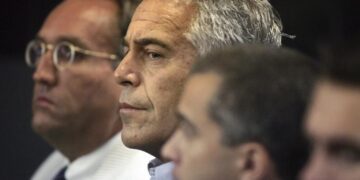More partisanship, please. Jonah Goldberg writes:
Courtrooms are partisan battlefields. The defense attorney is a zealous advocate for acquittal. The prosecutor is equally passionate about conviction. Both sides must deal honestly, but it is the competition between the two sides, the questioning of evidence, the inquiry into motives and methods, that produces a just outcome. Of course, sometimes it goes wrong. But it’s the best system we’ve got.
This is how the good kind of partisanship is supposed to work. Partisans have all manner of incentives to poke holes in the opposition’s arguments and proposals — some patriotic and principled, some more base and selfish. But the process of political combat, which is supposed to take place in Congress, not on cable TV or Twitter, should get us closer to both the truth and a consensus about the way forward. The public is supposed to be the jury. Unfortunately, too many jurors only want to hear arguments from either the defense or the prosecution.
It’s a cliché to note that the party out of power only cares about deficits and debt when it is out of power. This hypocrisy is annoying and at times dishonorable. But it’s better than the alternative. If it’s true that unlimited borrowing, mostly from China, to pay for things we can’t afford is bad, better to have someone saying so, even if they’re doing it for cynical purposes. Such complaints at least serve to check runaway deficit spending.
This week we crossed a Rubicon with the new bipartisan budget deal proposed by President Donald Trump and House Speaker Nancy Pelosi. It marks the end of either party even pretending to care about such things. It’s a victory of the sort of bipartisanship and unity so many claim this country needs. And it is a perfect example of how unity around a bad thing is worse than disunity over what constitutes a good thing.
[Jonah Goldberg, “Unity Can Be Worse than Partisanship,” National Review, July 26]







